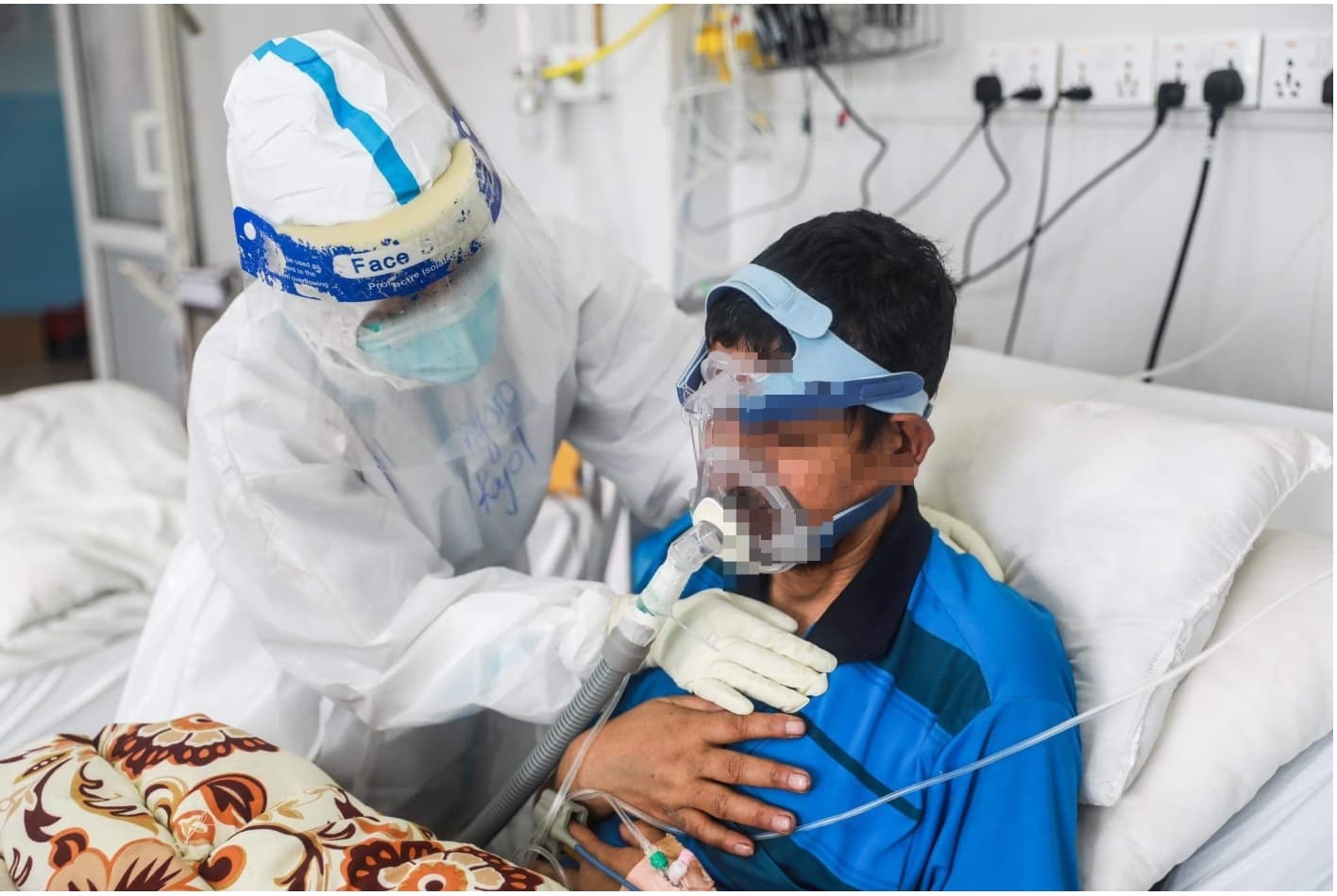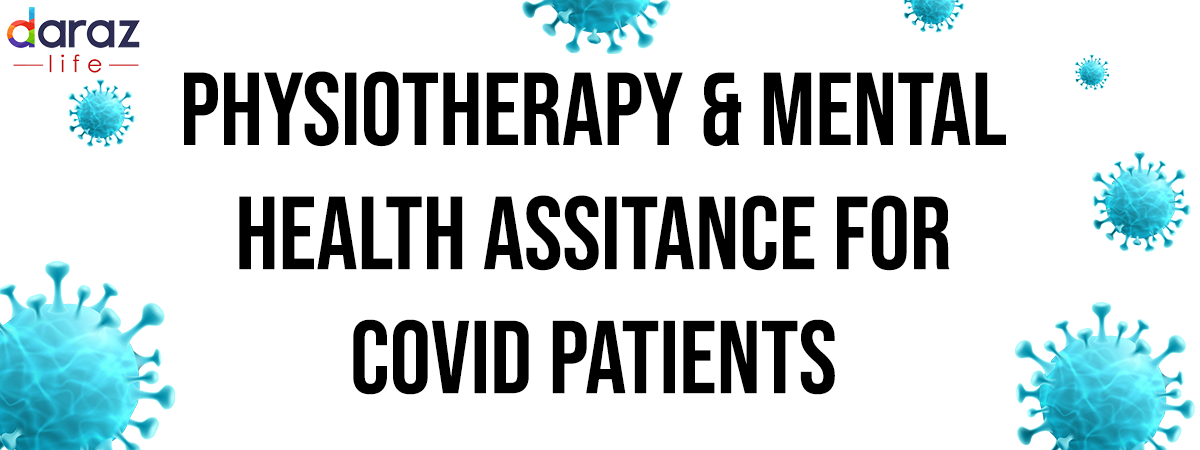COVID-19 has been rapidly increasing all over the world with total confirmed cases being 16,72,52,150 and total deaths reported 34,67,663 until May 25, 2021. The first COVID case reported in Nepal was on January 13, 2020 in a student who had recently returned from Wuhan, China. At present, Nepal reports an average of 8000 cases every day with a death rate of around 150 cases.
It wasn’t so long when some reputed government bodies, as well as doctors had declared that we had defeated the novel coronavirus. Something all of us thought was true. But in blink of an eye, things changed rapidly.
Hundreds of people searching for hospital beds, oxygen and other medical supplies, while at the same time mass cremations, the situation was devastating. And it still is. Major towns and cities all across our country are facing shortage of intensive care unit beds and medical oxygen.
We can’t even imagine the scenario of the rural parts of Nepal where even proper PCR test kits are not available. It wouldn’t be wrong to say that Nepal has already lost the battle. Sadly, the level of infection is going beyond the capacity of our public health system, like Dr. Chandra Mani Adhikari, executive director of Shahid Gangalal Heart centre said “Our health system has collapsed”.
But there’s hope, hope in helping the ones who’ve gone through a lot because of COVID. Recently, an interdisciplinary health team of counsellers and physiotherapy team have been playing a crucial role in helping COVID patients. Sufficient counselling and proper physiotherapy assistance is more likely help a COVID infected person to adapt to a healthy lifestyle.
Mental Health and COVID-19
The psychological trauma that a COVID infected person faces post recovery is still a major issue. Even though they’ve been cured physcially, their mental state remains in distraught. Proper mental state, care and emotional wellbeing is an important factor that needs to be addressed.
Since the COVID-19 pandemic, the prevalence of mental disorders has increased. Data from Nepal police showed that around 16-18 persons committed suicide everyday in 2020. A major issue that needs to be addressed immediately.
And so various non-profit organisations are working to fill the gaps of inadequate accessibility of mental health services. The World Health Organization, Country Office for Nepal along with the Ministry of Health and Population developed COVID-19 Mental and Psychological Support (MHPSS) intervention. Likewise, a National Mental Health Strategy and Action Plan has been formed that has been helping to improve access to quality essential health services.
Despite these initiatives, we can still see that there are gaps between prevalence of mental disorders and accessibility of mental health services. Thus, there is an urgent need to develop as well as implement required community-based mental health programs.

Importance of Physiotherapy for COVID-19 patients
Physiotherapy plays an important role in COVID-19 recovery. From helping to reduce associated comorbidities to help gain proper function and helping for a better quality of life after recovery, Physiotherapy is involved at every levels of COVID-19 recovery trajectory.
COVID acquired pneumonia and acute respiratory distress syndrome is a major cause of hospitalisation, intensive care unit admission and administrating advanced pulmonary support. This requirement of prolonged mechanical ventilation and stay in ICU for more than 7 days often leads to secretions retention, critical illness myopathy and critical illness polyneuropathy, resulting in deterioration of cardio-pulmonary and muscular endurance.
Thus, the primary role of a physiotherapy and physical therapist is to prevent these long-term complications by teaching breathing exercises, secretion clearance techniques along with endurance exercises and aiding through frequent ambulation’s.
Check out the video below to learn how you can improve your lung function through breathing techniques.
Likewise, the role of physical therapist is even present post COVID recovery. It is to make sure that the recovered person is able to return to full functional activities as he/she was able before. Therefore, rehabilitation even after COVID-19 is very crucial and should be allocated more attention.
Experiences
As a frontline worker, talking about my experiences, there have been a few. While entering the COVID wards and ICUs, the scenario was very chaotic and overwhelming. The continuous beeping on the monitor, the patients searching for oxygen, the nurses and doctors running here and there for the medicines and routine care and the caregiver’s eyes full of tears and as well as a hint of hope, it was a surreal experience.
As a physical therapist, I had been to a normal ICU before but the situation was and is completely different now. As I walked towards our first patient, i was overwhelmed. There he lay on his bed gasping for breath. When he saw me, he laid his hands in front of me and he whispered “I want to live for my wife and children, please save me”.
Keeping hold of my emotions, I told him that is exactly what I came for. I raised the height of the bed on the head end and assisted him to stay at 90 degree angle. The continuous positive pressure that was going into his lungs through a machine called CPAP was able to maintain his O2 saturation upto 95%.
When I asked him to take a deep breath, he couldn’t even do it. COVID had hit hard. Gently, I helped him to sit on the edge of bed and assisted him with some breathing control exercises.
The saturation level dropped below 80% however, I taught him some thoracic mobility exercises and gave a soft massage to his neck and scapular muscles. Within a few minutes, I saw his saturation rising beyond 90% and he could now perform other exercises.
He willingly agreed to do a few more exercises of the upper extremity, trunk and few repetitions of sit to stand as well. I then made him lie on his abdomen with pillow support on his chest, pelvis and knees.

I was about to leave when he looked at me and said, “I have come out of this bed only today. It’s been a week already” . With a smile, he thanked me.
And from that very day, I realised we could actually make a lot of impact on our patients suffering with COVID-19.
Now, it’s almost been more than one month that I have been looking after them every day and even today when I enter the room, I am always nervous yet motivated to dedicate myself and put all my efforts to bring at least a little change in someone’s life. I’m pretty sure you will hear thousands of similar stories from healthcare workers every day.
But, all we ask is a little support from everyone, whichever way possible, to dedicate their time and resources to help their own Nepalese people in this time of need.
BLOG POST WRITTEN BY:
PRIYANKA RAJAURIYA, Licensed Physiotherapist, PGD Counselling Psychology Student
&
KAJOL KUNWAR, Licensed Physiotherapist

